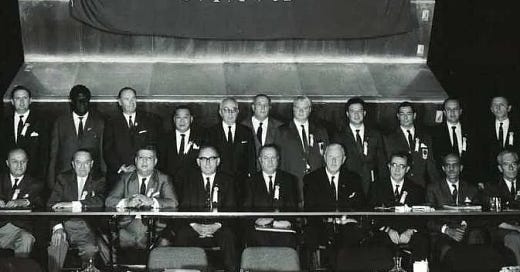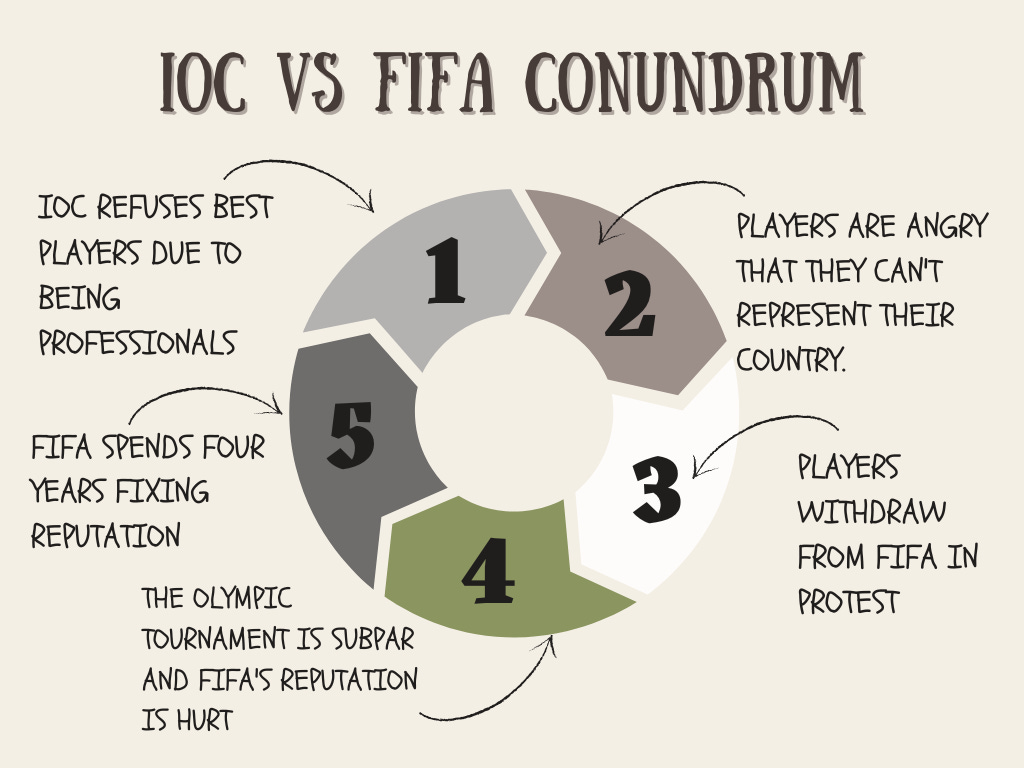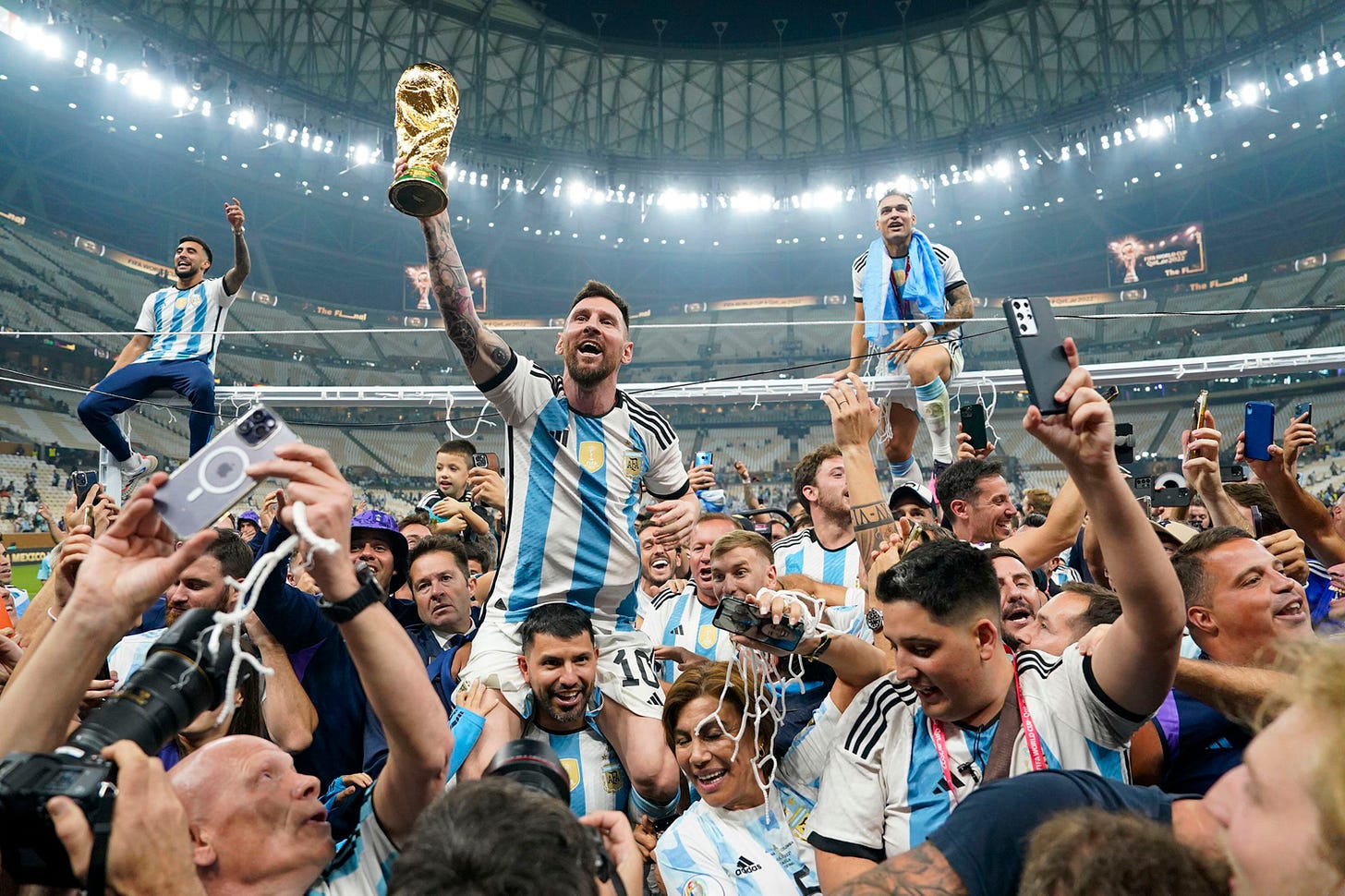Inception of The World Cup. The Olympics vs. FIFA: The Clash That Redefined Soccer
A Showdown That Transformed the Soccer World.
Soccer Takes the Main Stage:
Back in the late 1800s, a little game you might have heard of that involved a round ball and two nets swept the West off its feet. Everywhere you looked in England, France, and Germany, folks were lacing up, hitting the grassy fields, and having a ball (quite literally). Fast forward to the early 20th century, soccer wasn't just a game anymore; it had clinched the title of Europe's premier sport. But like anything that snowballs, it suffered some growing pains. Especially when attempting to organize games for athletes around Europe.
First, soccer became quite the cash cow for the shadier folks out there. Con artists and hustlers found a goldmine gambling on matches. Across Europe, "professional" soccer leagues sprang up left and right, promising thrill-a-minute action and nail-biting tournaments. Sure, these matches delivered on excitement, but let's just say the outcomes weren't always left to chance. Folks looking to line their pockets ensured the game went their way, slipping a few bills to referees, players, and anyone else with a price tag.
Next, some real issues sprung up when planning games across cities and countries. Heated debates were never-ending. "This is where the ball should be placed," "This is how much time is on the clock," and many other arguments created friction between teams playing one another. Imagine trying to win a tournament for the glory of your small town when one squad's playing pickleball and the other's playing ping pong. It was a real problem.
In 1904, Europe said, "Enough is enough," and decided to change. Eight countries joined forces to create the "Fédération Internationale de Football Association," or, as we call it in the good ol' United States, FIFA, to regulate games all over Europe. Their goal was simple: maintain the integrity of soccer, or, as they call it, football, no matter what.
In the summer of 1904, FIFA got its first shot at the world stage during the Summer Olympics in St. Louis, Missouri. But there was an issue…
Although the sport was a major powerhouse when it came to popularity in Europe, the IOC (International Olympic Committee) had a major (Some would their haters) problem. They refused to recognize Soccer/Football as an actual sport. This meant that the soccer tournament hosted that summer would be counted as a "demonstration sport." No athlete would be awarded medals.
This would be one of the first disagreements between FIFA and IOC. But it wouldn't be the last.
FIFA VS IOC
South America entered the party shortly after the 1904 games. Countries like Argentina, Brazil, and Uruguay had been shot by the Soccer Cupid arrow at the start of the 20th century, and it seemed as if there was no cure for the love disease.
Although obsession was growing worldwide for the sport, FIFA and the IOC started to argue. The IOC still refused to recognize soccer as a real sport. Like two titans clashing over dominion, this disagreement felt like life or death. After months of arguing and pleading, FIFA finally persuaded the IOC to recognize soccer as an official competition in the 1908 Olympics. But this decision came with a few conditions.
At the time, the Olympics only allowed "amateur athletes" to participate in the games. This meant that FIFA would have to ban any players being paid to play. Imagine telling your Lebron James, Tiger Woods, and Serena Williams, "You're benched from the world stage because you get paid for being the best in your country."
This was a major difference in ideologies.
Now, we think of FIFA as an old and prestigious organization. But in the early 1900s, it was the new kid on the block, especially compared to the Olympics.
IOC had a firm stance on what they expected from their athletes. Amateurs.
Like a boyfriend at a Taylor Swift concert, the IOC had no interest in having any professionals play in their games. Their mindset was simple yet firm. All players should compete for the love of the game (did they host the Olympics despite any monetary compensation) despite any monetary compensation. FIFA, on the other hand, called bullshit.
Like younger establishments usually do, FIFA had a more progressive ideology when it came to who could participate and who couldn't. Players in Europe were already paid handsomely for being the best at their craft. Why should players be penalized for being paid back home? It felt pointless to enforce amateurism. Worldwide play needed the best of the best, no matter what. Despite giving it their all, FIFA ultimately bowed down to the Olympics on the issue of amateurism. But everything changed in 1928 in the Netherlands.
1928 Summer Olympics:
1928 was the year of drama. Months before the Summer Olympic Games started, four teams in the United Kingdom decided to "withdraw" from FIFA in protest of the IOC's rules regarding amateurism. The best players in their countries were tired of being excluded from representing their country worldwide because they were the best at their craft.
This made FIFA red-hot. Fighting did not stop between the two organizations. But like big brothers often do, FIFA out-muscled its little brother. FIFA would have to participate in an event being marketed as "The World's Best Soccer Tournament" without its best players present.
This drawn-out and tiring cycle was insufferable.
It went against FIFA's mission to maintain the integrity of the world's most popular sport.
This decision was the final straw.
Often, a moment of disrespect can be a catalyst for significant change. This was FIFA's moment.
FIFA would announce its own tournament at the 1928 Olympic Games, utterly separate from the Olympics.
Now We Have The World Cup:
Thanks to a few side eyes, arguments, and rumored fistfights between FIFA and the IOC, we've been gifted the marvelous World Cup! FIFA has been crowned THE premiere worldwide soccer competition with 22 different tournaments since its inception.
What's the lesson from this story…
Let the best players play!







